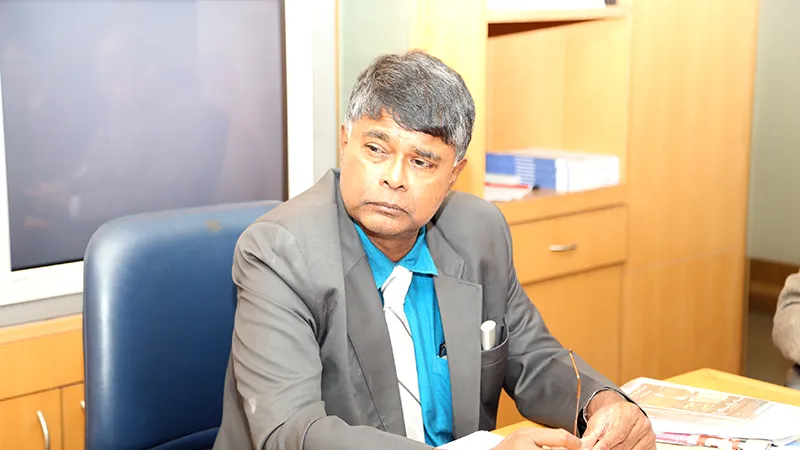-
CENTRES
Progammes & Centres
Location
The most important reason for Sri Lankan government's failure to move on reconciliation is the incapacity to work positively with moderate Tamil forces, according to Prof Rajiva Wijesinha, M.P. And in reaching out to Tamil parties, India's role is crucial.

Sri Lanka has not been able to pursue the reconciliation process following the 26-year long civil war with the amount of commitment required, said Prof Rajiva Wijesinha, a member of Parliament from Sri Lanka who has been involved in the reconciliation process. Mr Wijesinha was speaking at a round-table discussion on "Reconciliation in Sri Lanka and India’s role" at Observer Research Foundation on December 13, 2013.
Prof. Wijesinha opened his speech by drawing a sharp contrast between the relationship which both India and Sri Lanka enjoyed in 2009 with that of the present. Both the countries, he said, shared the common goal of eradicating terrorism from the region and encouraging pluralism to flower. But, he pointed out, things have not worked out as promised in the years since then.
The first reason for the lack of progress was myopia on the part of the Sri Lankan government. He argued that the major decision makers in the government were short-sighted in their approach to reconciliation. They believed that material development would ensure integration and solve the problem. Though the strategy seems to have worked in the East, it failed miserably in the North. He suggested that the government should create a separate ministry to safeguard human rights in the country. He called upon the think tanks and civil society organisations to ensure protection of human rights in Sri Lanka as well as in India.
Focusing on India’s role in this, he pointed out how India’s approach has always been, government to government one, making it less beneficial. There was a need of interaction between the thinkers of the respective countries, more specifically political thinkers, who could work together informally by developing an aid strategy and putting in place consultative mechanisms.
The second reason for the failure of reconciliation process, according to Professor Wijesinha, was diffidence. He said how Sri Lanka did not act well in accordance with the joint communiqué signed by the Sri Lankan President and Secretary-General of the United Nations. He blamed the Ministry of External Affairs and government at large for choosing blanket denials over taking up responsibilities of things like civilian casualties. He suggested that India’s role was significant, as confidence building measures to facilitate implementation of the recommendations made by the Lessons Learnt and Reconciliation Commission (LLRC) was called for. India could have played a major role in this.
The third problem was that some of the advisors around the President were not really concerned about the general welfare of the people but only in pursuing personal ambitions. Prof. Wijesinha argued that India could have worked more consistently with the Secretary of the President, under whom the reconciliation mechanisms were meant to function.
The fourth reason for government failure was the former commander and General of Sri Lankan Army, Sarath Fonseka. As Commander of the Army, he played an integral role in ending the 26-year Sri Lankan Civil War in 2009, defeating the rebel Liberation Tigers of Tamil Eelam. His subsequent decision to challenge President Mahinda Rajapaksa in the 2010 presidential election made the matters worse.
Lastly, the most important reason for government failure to move on reconciliation is the incapacity to work positively with moderate Tamil forces. There are many reasons for this distrust. Many Tamil politicians were seen to be pro-LTTE. Prof. Wijesinha said a way could be found out to reach out to the Tamil parties, however. The role of India in this regard was crucial. He argued that India should have made a greater use of its influence over Tamil politicians to persuade them to come to the negotiating table. He concluded that there was never more urgent a need for both Sri Lanka and India to resolve their differences and to work towards the common goal of peace and stability in the region.
(This report was prepared by Ananya Pandey, Research Intern, Observer Research Foundation, Delhi)
The views expressed above belong to the author(s). ORF research and analyses now available on Telegram! Click here to access our curated content — blogs, longforms and interviews.